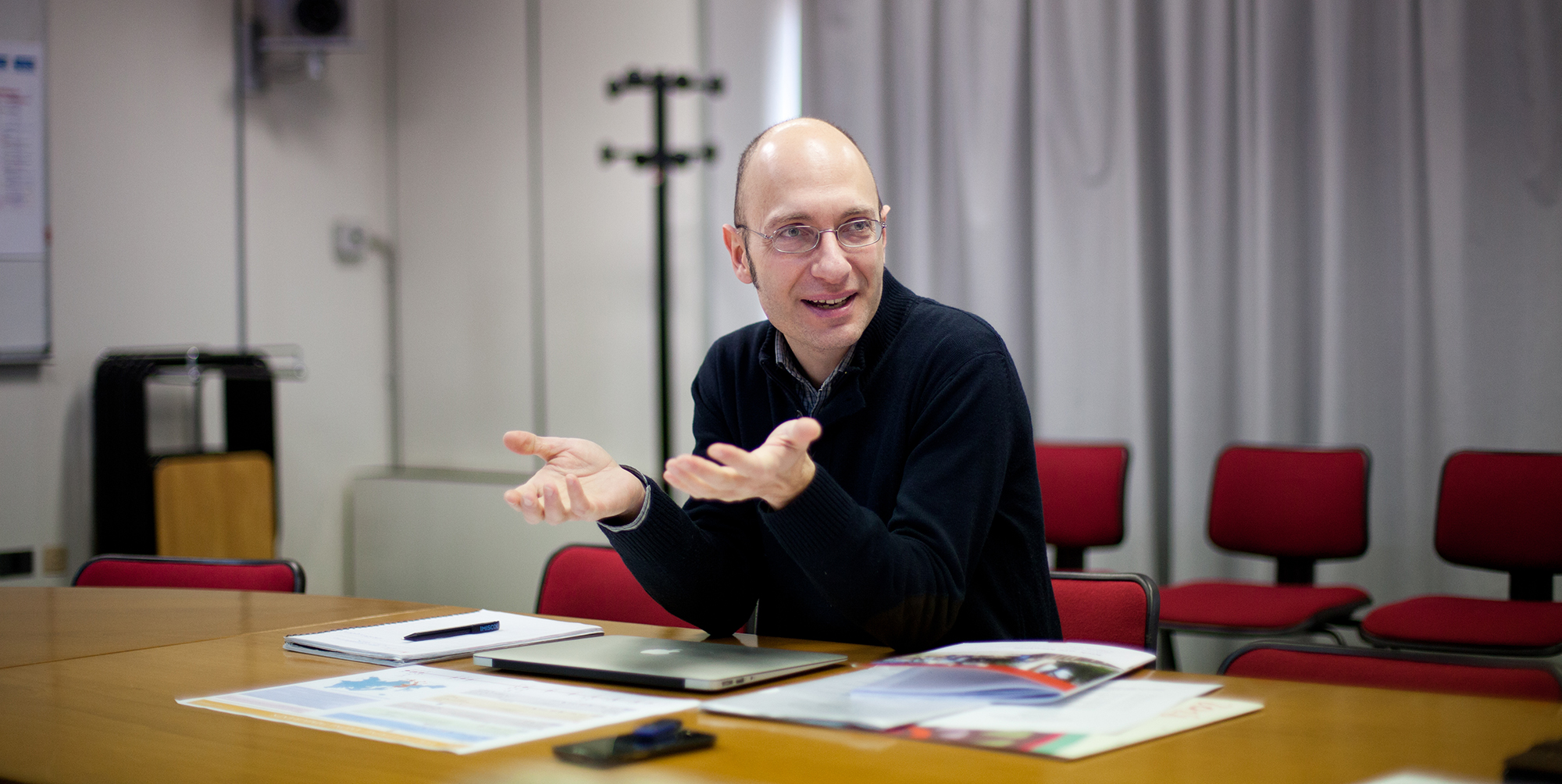Written Version
The University
The project is coordinated by Aristotle University of Thessaloniki. AUTh is a huge institution, it is the largest university in Greece hosting nearly 74000 students at undergraduate and postgraduate levels, and covering a wide range of disciplines.
The base of the VAI project team is the School of Spatial Planning and Development, so we are mostly a school of planning covering different scales of planning: urban planning, regional planning, geography and geographical information system (GIS) are also included in our programme of studies, development studies, these are perhaps the main themes. There are a few of us, colleagues in the Department who have an interest in relating questions of space and the organisation of space with issues regarding migration and migrants, refugees, minorities, among other social groups. So this is where we fit within the overall VAI project.
We are a team of three: two of us are assistant professors in the School and we have an external research assistant who is a PhD candidate. We have a range of different disciplinary backgrounds, so I am closer to a human geographer, my colleague is a sociologist and planner is the research assistant.
Our Role in the Project
The role of the AUTh in the VAI project is the coordinating role. I am leading the team, so I am the overalll coordinator of the project, assisted by my colleagues at the School. The coordinator is a necessary although perhaps not that a pleasant one, as there is the need of managing and having an overview of the entire project activities and progress of the work, managing also relations between and among partners. I am also leading the Aristotle University team, coordinating our local activities. For the time being, obviously the management issues are an ongoing process, so this has been there since the beginning. The dissemination aspect is another dimension of the project that we are involved, although we are not leading this one. The main thing that we are involved at this stage of the project is the research work package, which is a study about the context and motives of volunteering in the four participant countries.
Expectations
As far as the current phase, that is the research, most importantly, is concerned, we would expect to map the existing situation and recent history of voluntarism for and by migrants, as well as to understand what shape and face does it take in the four countries taking part in the project. We have two North-Central EU countries, let’s say «traditional» destinations for migrants, such as Germany and Austria, and two fairly new destinations, and ultimately transit countries in the European South, Italy and Greece. We would also like to understand the context and motives of volunteering, especially in the conptemporary conjuncture, which has been largely affected and shaped to an extent by the so-called «European refugee crisis» of 2015-16. So under this frame, I would also expect us to be able to make sense of the multiplicity of actors and stakeholders, while at the same time being also able to grasp the subjective perspectives and experiences of individual volunteers, whether migrants or not, and see what are the issues in common and what are the pecularities of the migrant condition. We are employing quite a broad definition of «the migrant» here, because obviously that may refer to second generation up to recently arrived asylum seekers. What seems to be emerging from our research in the Greek case, for instance, at this stage, still ongoing although it will come to be completed soon, is an entire archipelago of organisations, projects, groups, initiatives involving volunteering work for migrants and by migrants, and a variety of forms of involvement of migrants as volunteers. There is also quite a grey zone, or perhaps better a series of overlapping layers between formal and informal organisations, initiatives, groups, many of which may pertain to the humanitarian or third sector, NGOs, Charities and so on, others may stem from rather «traditional» actors such as political parties or the Church, and yet others are related or stem from the grassroots social movements, or even from simple acts of kindness towards others in need. Moreover the VAI project relates volunteerism as a feature of civic participation and active citizenship to the notion and processes of migrants’ integration, a dimension we also look at, but we would like perhaps – or i would expect us to go beyond its conventional or mainstream understanding and see what does it mean in practice, for individuals or for voluntary organisations.
Contact Details
Panos Hatziprokopiou
Aristotelio Panepistimio Thessalonikis University Campus
Administration Bureau
Thessaloniki 54124
Greece

